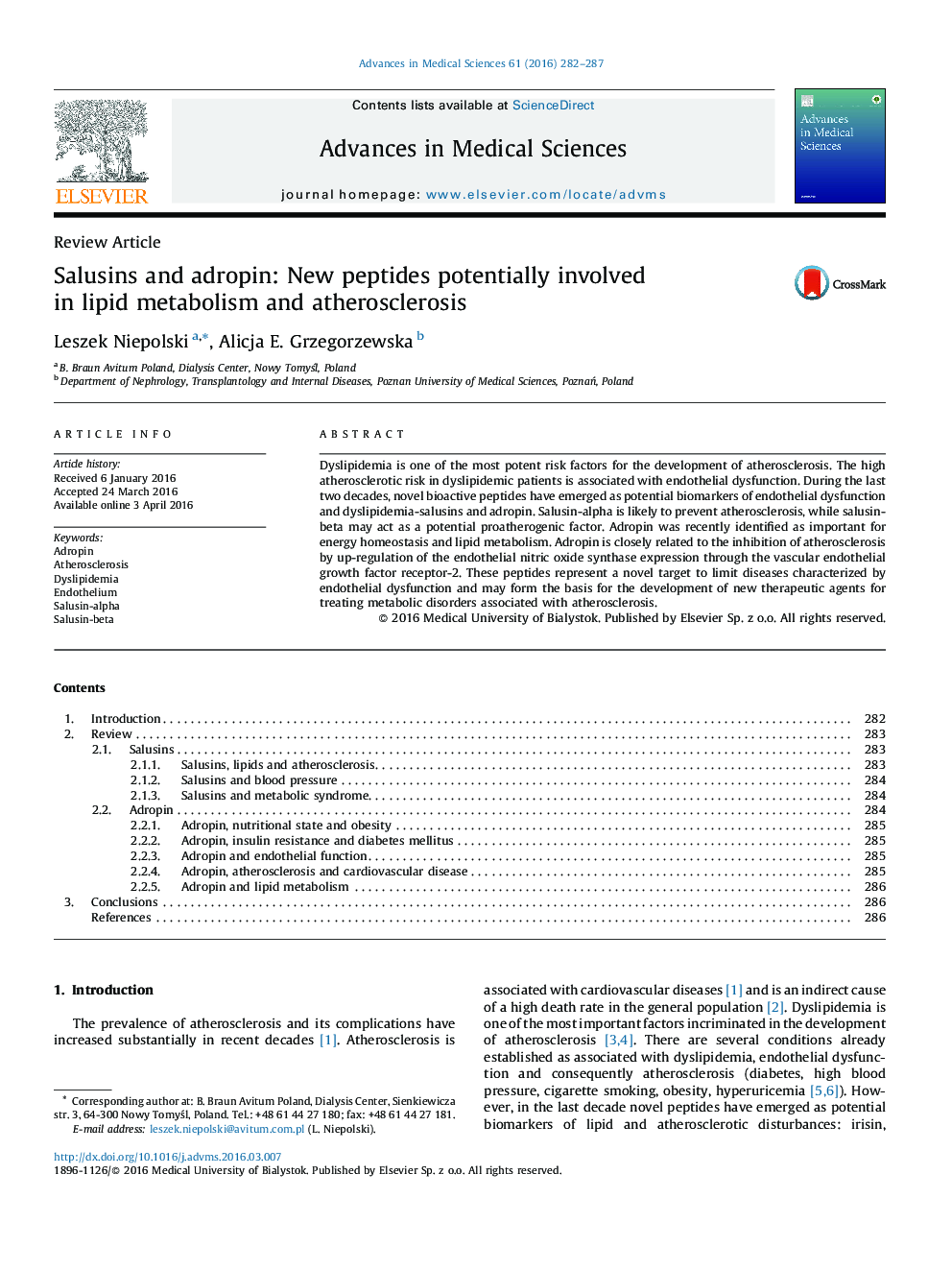| Article ID | Journal | Published Year | Pages | File Type |
|---|---|---|---|---|
| 2031826 | Advances in Medical Sciences | 2016 | 6 Pages |
Dyslipidemia is one of the most potent risk factors for the development of atherosclerosis. The high atherosclerotic risk in dyslipidemic patients is associated with endothelial dysfunction. During the last two decades, novel bioactive peptides have emerged as potential biomarkers of endothelial dysfunction and dyslipidemia-salusins and adropin. Salusin-alpha is likely to prevent atherosclerosis, while salusin-beta may act as a potential proatherogenic factor. Adropin was recently identified as important for energy homeostasis and lipid metabolism. Adropin is closely related to the inhibition of atherosclerosis by up-regulation of the endothelial nitric oxide synthase expression through the vascular endothelial growth factor receptor-2. These peptides represent a novel target to limit diseases characterized by endothelial dysfunction and may form the basis for the development of new therapeutic agents for treating metabolic disorders associated with atherosclerosis.
